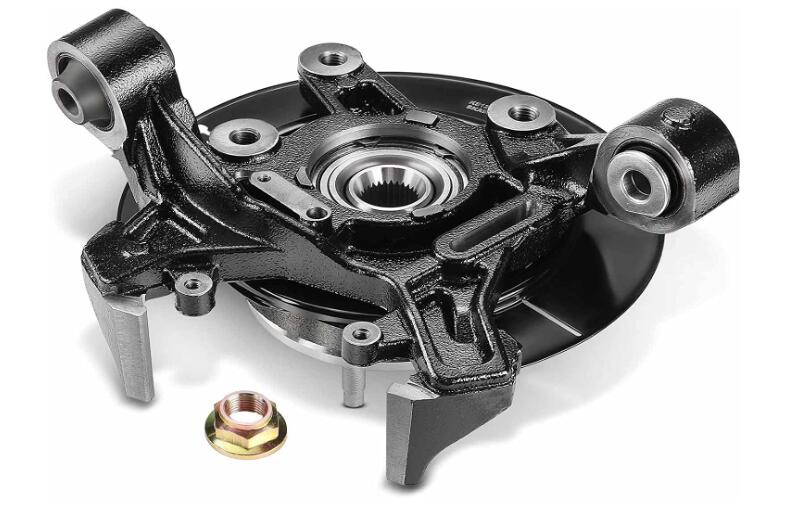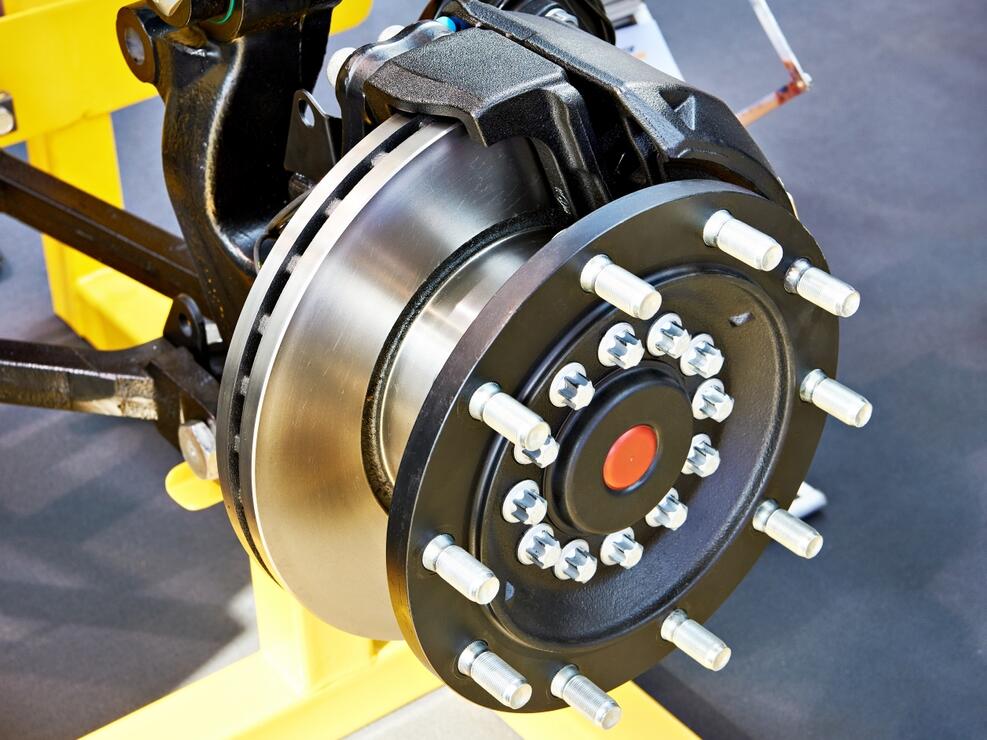Introduction
Choosing a wheel hub assembly manufacturer is a critical decision for businesses in the automotive industry.
The quality of the wheel hub assembly can directly impact a vehicle’s performance, safety, and longevity, making the selection of a reliable manufacturer essential.
However, this decision can be challenging given the vast number of manufacturers in the market, each with unique offerings, capabilities, and advantages.
To navigate this complex landscape, businesses must consider several critical aspects that can guide their decision-making process and ensure they partner with a manufacturer to deliver quality, consistency, and value.
This article delves into these crucial aspects, providing a comprehensive guide to selecting a wheel hub assembly manufacturer that aligns with your business needs and objectives.
Quality and Consistency
Quality and consistency are the most vital attributes to look for in a wheel hub assembly manufacturer.
The manufacturer should be able to produce high-quality components consistently, ensuring optimal performance and safety for the end-user.
The manufacturer’s quality control processes can provide insight into their ability to deliver on this front.
Look for manufacturers with robust quality control measures, such as regular testing at each production stage, stringent inspection of raw materials, and rigorous final product testing.
Moreover, certifications from recognized industry bodies can attest to the manufacturer’s commitment to quality.
Certifications such as ISO 9001 for quality management systems and IATF 16949 for automotive quality management systems can offer reassurance of the manufacturer’s ability to produce high-quality wheel hub assemblies consistently.
Expertise and Experience
A manufacturer’s expertise and experience in wheel hub assembly production can significantly impact the quality and performance of their products.
Manufacturers with a long track record will likely have honed their production processes and problem-solving capabilities, ensuring they can deliver high-quality products consistently and efficiently.
Look for manufacturers with considerable industry experience, preferably with diverse clients.
This diversity can indicate their ability to cater to different needs and adapt to changing market dynamics.
Consider the manufacturer’s expertise in various wheel hub assembly types and materials.
This expertise ensures they can provide the right solution for your requirements.
Innovation and Technological Capabilities
With the rapid pace of technological advancements in the automotive industry, the ability to innovate and adapt is crucial.
Manufacturers that invest in research and development and employ cutting-edge technologies in their production processes are likely to produce superior products that meet the market’s evolving needs.
Technological capabilities to look out for include advanced manufacturing technologies such as computer numerical control (CNC) machining, automated assembly lines, and high-precision inspection equipment.
Additionally, capabilities in emerging areas such as smart manufacturing and additive manufacturing can offer a competitive edge.
Flexibility and Responsiveness
Flexibility and responsiveness are crucial in today’s fast-paced and dynamic automotive market.
Your business needs may change rapidly, and your manufacturer should be able to respond to these changes quickly and efficiently.
Consider the manufacturer’s production volume, lead times, and customization capabilities.
They should be able to scale up or down their production per your needs, deliver products within acceptable lead times, and customize their offerings to meet your specific requirements.
Moreover, look at the manufacturer’s responsiveness in communication.
They should be able to provide prompt and accurate responses to your queries, concerns, and requests.
A responsive manufacturer can ensure smoother collaboration and better problem resolution.
Price and Value
While price should not be the sole deciding factor, it is undoubtedly important.
However, rather than focusing solely on the cost, consider the value that the manufacturer offers.
This value can include the quality of their products, service levels, technological and innovative capabilities, and ability to meet your specific needs.
Avoid manufacturers that offer suspiciously low prices, as they may compromise on quality to cut costs. Instead, opt for manufacturers that offer a good balance of price and value, ensuring you receive high-quality products that justify their cost.
After-Sales Service and Support
In addition to the manufacturer’s capabilities and product quality, their after-sales service and support are also critical.
A manufacturer that offers excellent after-sales support can help you address any issues or challenges that arise after the purchase, ensuring smooth and efficient operations for your business.
Consider aspects such as the manufacturer’s warranty terms, their process for handling complaints or issues, and their availability for technical support.
A manufacturer that stands behind their products and is ready to assist you when needed can be a valuable partner for your business.
Reputation and Reviews
Finally, consider the manufacturer’s reputation in the market.
A manufacturer with a positive reputation will likely deliver high-quality products and services.
Check online reviews, industry forums, and social media to gain insight into the manufacturer’s reputation.
Speak to their existing or past clients. They can provide firsthand information about the manufacturer’s product quality, service, and support.
While a few negative reviews are not necessarily a cause for concern, consistent negative feedback can be a red flag.
Sustainability Commitments
As the automotive industry shifts towards sustainability, partnering with a manufacturer that shares this commitment can be beneficial.
Manufacturers that prioritize environmentally friendly practices in their operations can help you reduce your carbon footprint and appeal to environmentally conscious customers.
Look for manufacturers that have clear sustainability policies and practices in place. These can include energy-efficient manufacturing processes, waste reduction initiatives, and responsible sourcing of materials.
Long-Term Partnership and Business Growth
In the automotive industry, long-term relationships often lead to beneficial partnerships.
As such, consider the potential of a long-term partnership with the manufacturer.
A manufacturer interested in understanding your business and growing with you can be invaluable.
Ask about their plans – Are they planning on expanding their product range?
Do they have strategies for keeping up with technological advancements in the industry?
A manufacturer with plans for the future can ensure that it will continue to be a reliable source of high-quality wheel hub assemblies as your business grows and evolves.
Global Supply Chain and Logistics
The globalization of the automotive industry means that your wheel hub assembly manufacturer might be in a different country than your business.
Therefore, it’s crucial to consider the manufacturer’s global supply chain and logistics capabilities.
A manufacturer with a robust global supply chain can ensure timely and efficient delivery of products, irrespective of your location.
Additionally, they should be able to navigate international trade regulations and customs procedures to prevent delays and additional costs.
Regulatory Compliance
Compliance with local and international regulations is another essential factor when choosing a wheel hub assembly manufacturer.
These regulations cover various aspects, from safety and environmental standards to import/export regulations.
A manufacturer that stays updated with regulatory changes and ensures compliance can help you avoid legal issues and potential penalties.
Ask for information about their compliance strategies and how they handle regulatory changes.
Conclusion
Selecting a wheel hub assembly manufacturer is a strategic decision that can significantly impact the success and growth of your business.
Therefore, it requires comprehensive research and careful consideration of various factors, including quality, consistency, experience, innovation, flexibility, price, after-sales service, reputation, sustainability, the potential for a long-term partnership, global supply chain capabilities, and regulatory compliance.
By taking the time to consider these aspects and evaluate different manufacturers based on these criteria, you can find a partner that not only meets your current needs but also supports your future growth and success.
Ultimately, the effort you put into this process can yield significant dividends in product quality, customer satisfaction, and business growth.




